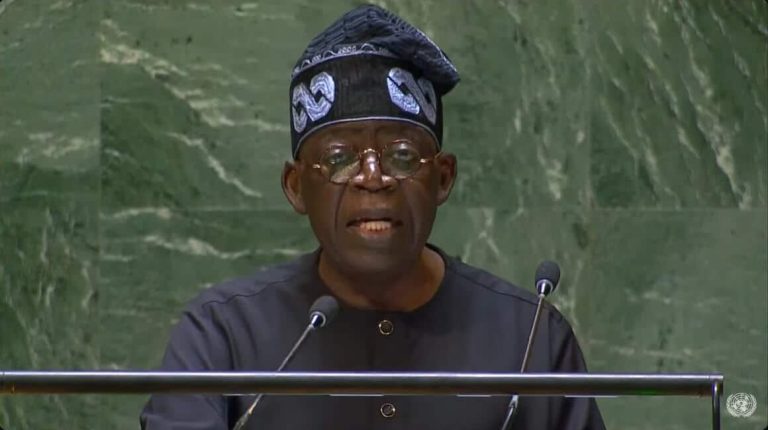President Bola Tinubu on Tuesday said the decision to remove petroleum subsidy was a challenging one, but a necessary step to secure long term energy security and foster economic growth for the country.
The president said this while officially opening the 7th edition of the Nigeria International Energy Summit (NIES 2024) at the State Banquet Hall, Aso Villa, Abuja.
The summit has as its theme, “Navigating the New Energy World Order: Security, Transition, and Finance.”
Tinubu said to mitigate short-term effects of petroleum subsidy removal on the vulnerable population, his administration was committed to implementing social intervention programmes.
Tinubu, represented by the Minister of Information and National Orientation, Alhaji Mohammed Malagi, said the petroleum subsidy had over the years strained Nigeria’s economic resources.
This, he said, led to inefficiencies and hindered investment in critical areas of energy security.
“By removing the subsidy, we are creating a more transparent and accountable energy sector.
“The funds that were previously allocated to subsidizing petroleum products are now redirected towards developing and upgrading our energy and other social infrastructure.
“Furthermore, subsidy removal has encouraged further private sector participation in the energy industry with potential of attracting more local and international investors, innovation and competition in the sector.
ALSO READ: Stock market loses N51bn in equity
“I am very aware of the immediate impact this decision may have had on our citizens, especially those with lower incomes.
“Therefore, in parallel with the subsidy removal, my administration is committed to implementing social intervention programmes to mitigate the short-term effects on vulnerable populations,” he said.
These programmes, he said, would ensure that the burden of the subsidy removal was shared equitably and that the most vulnerable Nigerians were protected.
The president thanked the organizers of the summit for the opportunity to once again address the subsidy removal, which he said was a crucial issue that had been in the forefront of Nigeria’s national discourse.
“Our great nation has long been dependent on the revenue generated from oil exports, and as we stand at the crossroads of the 21st century, it is imperative that we re-evaluate our energy policies to ensure sustainable future,” he said.
ALSO READ: NBS reports nationwide surge in food prices for Jan 2024
However, he urged all stakeholders, including industry experts, policymakers and the general public to engage in constructive dialogue and collaboration, while navigating these challenging but transformative times.
He thanked everyone who contributed to the success of the summit, adding that it reflected a shared commitment to addressing the challenges and opportunities ahead in the dynamic and ever-evolving world of energy.
“This marks the first edition of NIES during my administration, and I am honoured to stand before you as we collectively chart a course for the sustainable and secure energy future of Nigeria.
“Energy security, as we know, is of paramount importance. It is not just a national concern; it is a global imperative.
“In the face of emerging challenges, both geopolitical and technological, we must ensure the resilience of our energy infrastructure.
“The decisions we make today will impact the energy security of generations to come,” he added.
He emphasised leveraging innovation and collaboration to ensure a smooth and just transition that would leave no one behind.
“As a nation, we must explore innovative financing models, engage with the private sector, and attract investments that will propel us towards a more resilient and diversified energy sector,” he said.
The summit, holding from Feb. 26 to March 1, has in attendance more than 6,000 foreign and local oil and gas industry players, regulators and investors.
NAN


